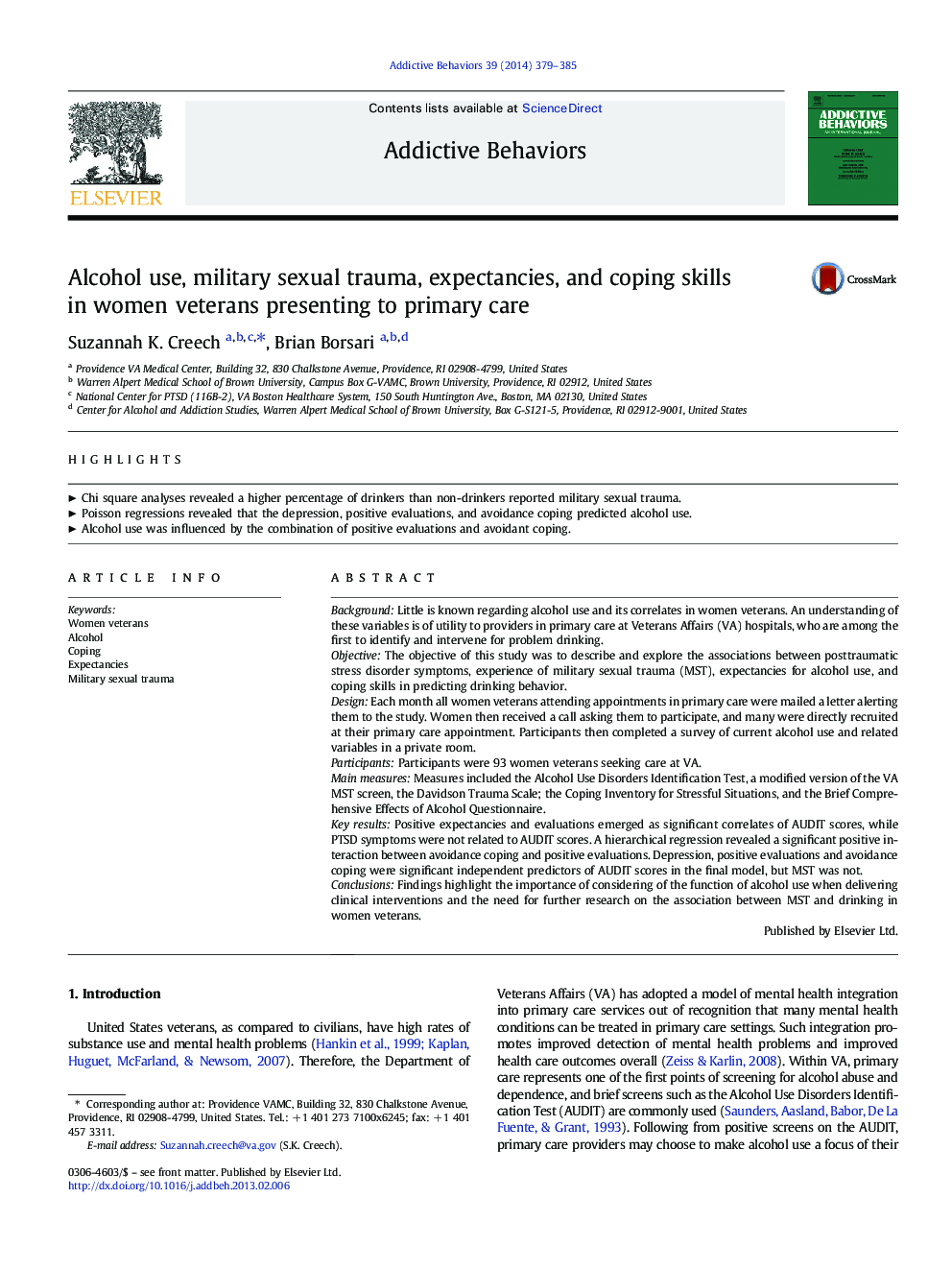| کد مقاله | کد نشریه | سال انتشار | مقاله انگلیسی | نسخه تمام متن |
|---|---|---|---|---|
| 898946 | 915351 | 2014 | 7 صفحه PDF | دانلود رایگان |
BackgroundLittle is known regarding alcohol use and its correlates in women veterans. An understanding of these variables is of utility to providers in primary care at Veterans Affairs (VA) hospitals, who are among the first to identify and intervene for problem drinking.ObjectiveThe objective of this study was to describe and explore the associations between posttraumatic stress disorder symptoms, experience of military sexual trauma (MST), expectancies for alcohol use, and coping skills in predicting drinking behavior.DesignEach month all women veterans attending appointments in primary care were mailed a letter alerting them to the study. Women then received a call asking them to participate, and many were directly recruited at their primary care appointment. Participants then completed a survey of current alcohol use and related variables in a private room.ParticipantsParticipants were 93 women veterans seeking care at VA.Main measuresMeasures included the Alcohol Use Disorders Identification Test, a modified version of the VA MST screen, the Davidson Trauma Scale; the Coping Inventory for Stressful Situations, and the Brief Comprehensive Effects of Alcohol Questionnaire.Key resultsPositive expectancies and evaluations emerged as significant correlates of AUDIT scores, while PTSD symptoms were not related to AUDIT scores. A hierarchical regression revealed a significant positive interaction between avoidance coping and positive evaluations. Depression, positive evaluations and avoidance coping were significant independent predictors of AUDIT scores in the final model, but MST was not.ConclusionsFindings highlight the importance of considering of the function of alcohol use when delivering clinical interventions and the need for further research on the association between MST and drinking in women veterans.
► Chi square analyses revealed a higher percentage of drinkers than non-drinkers reported military sexual trauma.
► Poisson regressions revealed that the depression, positive evaluations, and avoidance coping predicted alcohol use.
► Alcohol use was influenced by the combination of positive evaluations and avoidant coping.
Journal: Addictive Behaviors - Volume 39, Issue 2, February 2014, Pages 379–385
